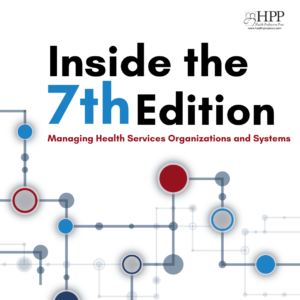
Why Increased Productivity Will Help Your Healthcare System in Organizational Changes
According to leadership interviews with the Harvard Business Review, healthcare executives are concerned about the future of their industry. As the United States transitions to a new Presidential administration and Congress, questions about where healthcare systems go from here are brought to the forefront. The consensus of the interviewed executives (associated with Vanderbilt, Johns Hopkins, Harvard, Virginia Commonwealth, and the University of Utah): the challenges will be both financially and managerial difficult.
To succeed in transforming the healthcare system, it will be necessary that organizations develop new business models and undergo organizational changes. And this large undertaking will not be cheap—organizations will have to invest in finance, technology, human capitol, operations, and infrastructure, among other things. But where will this money come from?
While many factors go into reducing costs, one approach that should be taken is to make increased productivity part of the planning for new business models and organizational change. “All healthcare systems are concerned with productivity because labor accounts for the bulk of an organization’s expenses,” says Paul Fogel, a consultant who has worked with more than 70 hospitals offering services in productivity improvement. “As organizations contemplate the purchase of newer, more sophisticated systems, the central question to be answered is this: Why have such systems not reduced [our] costs?”
The answer, Fogel argues, lies fundamentally in the productivity of the organization. “The proper focus needs to be on management structures that address consequences for poor management, incentives for achieving superior outcomes, and a process that drives responsibility and accountability down to the proper management level.” Superior productivity begins with the management philosophy of an organization—start there, and organizations can develop a system that can ultimately free up resources to invest in needed innovations and new technologies.
In helping dozens of hospitals increase their productivity across departments and services, Fogel has demonstrated that it can be done in a surprisingly short time and at low cost. He has shared his approach in his guide Superior Productivity in Healthcare Organizations: How to Get It, How to Keep It, Second Edition. CEO of Foster Health Consulting, Megan Foster, recommends hospital leaders “buy a copy for every manager at your hospital—you won’t regret it.” A handy resource, and a crucial one— the daunting task of effecting change in healthcare is no longer the future, but the present.
Paul Fogel, M.B.A., is the President of Executive Information Systems, Inc., an independent firm that produces financial reporting and forecasting systems for hospitals as well as offers services in productivity improvement, benchmarking, operations analysis, feasibility studies, and business planning. Mr. Fogel offers a unique perspective gained from working in more than 70 hospitals.
Read the book!
Superior Productivity in Healthcare Organizations
How to Get It, How to Keep It
Second Edition
By Paul Fogel, M.B.A.
Copyright © 2016 by Health Professions Press, Inc.
Keep your organization financially healthy and implement sustainable practices with the second edition of this critical guide.
Recommended Reading:
- “We Interviewed Health Care Leaders About Their Industry, and They’re Worried” (Harvard Business Review, 12/14/2016)
- Superior Productivity in Healthcare Organizations: How to Get It, How to Keep It, Second Edition by Paul Fogel, MBA






Add comment